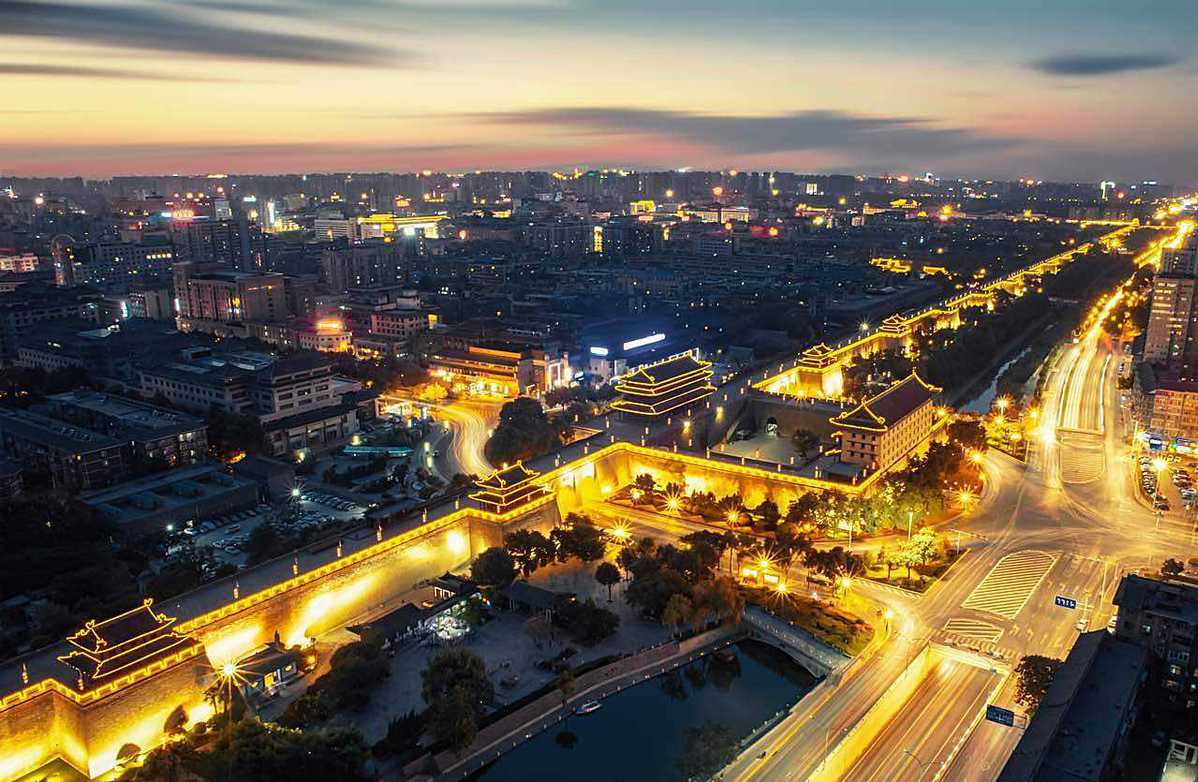History of Xi'an


A world renowned historical and cultural city, Xi'an was chosen more often than any other city as an ancient dynastic capital. Its influence has been very wide. Xi'an is the cradle of the Chinese nationality, the birthplace of the Chinese civilization and the representative of Chinese culture. In China's remote antiquity, "Lantian Ape Man" lived in its region; in the Neolithic Period, "Banpo Villagers" settled there to set up their tribes; and in the 11th century BC, King Wen of the Zhou Dynasty established the two capitals of Feng and Hao on the banks of the Fenghe River, initiating Xi'an's brilliant history as a thousand-year capital of China.
The city was first established more than 3,100 years ago and was a capital of 13 dynasties over 1,129 years, including the Western Zhou (c. 11th century -771 BC), the Qin (221-207 BC), the Western Han (206 BC-AD 8), the Xin (9-23), the Eastern Han (25-220), the Western Jin (265-317), the Former Zhao (304-329), the Former Qin (351-394), the Later Qin (384-417), the Western Wei (535-556), the Northern Zhou (557-581), the Sui (581-618), and the Tang (618-907). Xi'an is among the Top Four Ancient Capitals of the world, in the company of Athens, Rome and Cairo. It once functioned as the political, economic and cultural center of China and as the starting point of the Silk Road.
Thanks to its long history and rich culture, Xi'an has yielded numerous cultural relics, the most famous of which is the Terracotta Army excavated in suburban Xi'an in the 1970s, now credited as the eighth wonder of the world. The total number and value of Xi'an's relics rank first among cities of China. Some of them are unique in China and rare in the world.
Origin of the city's name
In the year 1046 BC in the Western Zhou Dynasty, Xi'an was called Fenghao, which was the combination of two cities, Fengjing and Haojing, established by the Emperor Wen and Emperor Wu of Zhou respectively. In the history of China, the two cities were the first national capitals to rule the entire state. In the early Western Han Dynasty (206 BC- AD 220), Liu Bang established his capital in Xi'an and named it Chang'an, which means "eternal ruling and permanent peace"; from then to the late Tang Dynasty (618-907) the city took the name of Chang'an, bearing it as the capital of 13 dynasties for more than 1,100 years. After the Tang Dynasty, Chang'an was renamed Jingzhou Prefecture during the Later Tang Dynasty, Shaanxi Province during the Song Dynasty (960-1279), Anxi Province during the Yuan Dynasty (1271-1368), and Fengyuan Province later in the Yuan Dynasty. It functioned as the political, economic and cultural center of northwestern China. In the spring of 1369, the second year of the Ming Dynasty, Xu Da, a general under the Hongwu emperor, occupied Fengyuan Province and renamed it Xi'an, meaning "to pacify northwest". Since then, the name of Xi'an has been adopted.
Contemporary history
May 20, 1949 celebrated the liberation of Xi'an city. Upon the founding of the People's Republic of China, Xi'an was chosen as the headquarters of the Northwest Bureau of the Central Committee of the CPC and the Northwest Administrative Committee respectively and placed directly under the jurisdiction of the Central Government. In 1954, it became the capital city of Shaanxi Province and was listed under separate state planning in 1984. In 1992, it was approved as an opening city of inland China. In 1994, Xi'an was authorized to be a national comprehensive supporting reform pilot city and a sub-provincial city. After 60 years of extensive development, a complete industrial system and urban service system have taken shape. Xi'an has become a key center for scientific research, higher education, national defense and hi-tech industry in China. It is also a hub of finance, science and technology, education, tourism, and trade in the country's northwestern region.







